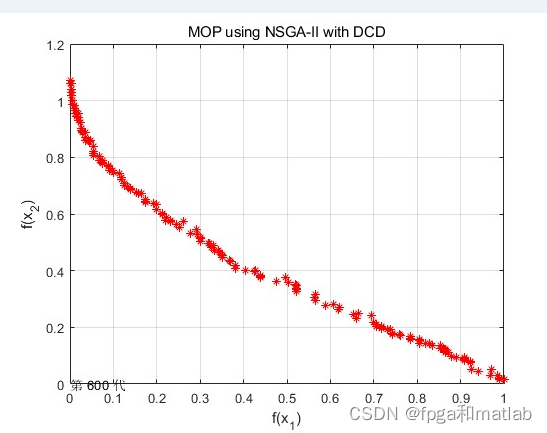Java对图的操作
包含检测是否有环,前序、后序等操作/** Licensed to the Apache Software Foundation (ASF) under one or more* contributor license agreements.See the NOTICE file distributed with* this work for additional information regar
·
包含检测是否有环,前序、后序等操作
/*
* Licensed to the Apache Software Foundation (ASF) under one or more
* contributor license agreements. See the NOTICE file distributed with
* this work for additional information regarding copyright ownership.
* The ASF licenses this file to You under the Apache License, Version 2.0
* (the "License"); you may not use this file except in compliance with
* the License. You may obtain a copy of the License at
*
* http://www.apache.org/licenses/LICENSE-2.0
*
* Unless required by applicable law or agreed to in writing, software
* distributed under the License is distributed on an "AS IS" BASIS,
* WITHOUT WARRANTIES OR CONDITIONS OF ANY KIND, either express or implied.
* See the License for the specific language governing permissions and
* limitations under the License.
*/
import org.apache.commons.collections4.CollectionUtils;
import java.util.AbstractMap;
import java.util.ArrayList;
import java.util.Collection;
import java.util.Collections;
import java.util.HashMap;
import java.util.LinkedList;
import java.util.List;
import java.util.Map;
import java.util.Queue;
import java.util.Set;
import java.util.concurrent.locks.ReadWriteLock;
import java.util.concurrent.locks.ReentrantReadWriteLock;
import org.slf4j.Logger;
import org.slf4j.LoggerFactory;
/**
* analysis of DAG
* Node: node
* NodeInfo:node description information
* EdgeInfo: edge description information
*/
public class DAG<Node, NodeInfo, EdgeInfo> {
private static final Logger logger = LoggerFactory.getLogger(DAG.class);
private final ReadWriteLock lock = new ReentrantReadWriteLock();
/**
* node map, key is node, value is node information
*/
private final Map<Node, NodeInfo> nodesMap;
/**
* edge map. key is node of origin;value is Map with key for destination node and value for edge
*/
private final Map<Node, Map<Node, EdgeInfo>> edgesMap;
/**
* reversed edge set,key is node of destination, value is Map with key for origin node and value for edge
*/
private final Map<Node, Map<Node, EdgeInfo>> reverseEdgesMap;
public DAG() {
nodesMap = new HashMap<>();
edgesMap = new HashMap<>();
reverseEdgesMap = new HashMap<>();
}
/**
* add node information
*
* @param node node
* @param nodeInfo node information
*/
public void addNode(Node node, NodeInfo nodeInfo) {
lock.writeLock().lock();
try {
nodesMap.put(node, nodeInfo);
} finally {
lock.writeLock().unlock();
}
}
/**
* add edge
*
* @param fromNode node of origin
* @param toNode node of destination
* @return The result of adding an edge. returns false if the DAG result is a ring result
*/
public boolean addEdge(Node fromNode, Node toNode) {
return addEdge(fromNode, toNode, false);
}
/**
* add edge
*
* @param fromNode node of origin
* @param toNode node of destination
* @param createNode whether the node needs to be created if it does not exist
* @return The result of adding an edge. returns false if the DAG result is a ring result
*/
private boolean addEdge(Node fromNode, Node toNode, boolean createNode) {
return addEdge(fromNode, toNode, null, createNode);
}
/**
* add edge
*
* @param fromNode node of origin
* @param toNode node of destination
* @param edge edge description
* @param createNode whether the node needs to be created if it does not exist
* @return The result of adding an edge. returns false if the DAG result is a ring result
*/
public boolean addEdge(Node fromNode, Node toNode, EdgeInfo edge, boolean createNode) {
lock.writeLock().lock();
try {
// Whether an edge can be successfully added(fromNode -> toNode)
if (!isLegalAddEdge(fromNode, toNode, createNode)) {
logger.error("serious error: add edge({} -> {}) is invalid, cause cycle!", fromNode, toNode);
return false;
}
addNodeIfAbsent(fromNode, null);
addNodeIfAbsent(toNode, null);
addEdge(fromNode, toNode, edge, edgesMap);
addEdge(toNode, fromNode, edge, reverseEdgesMap);
return true;
} finally {
lock.writeLock().unlock();
}
}
/**
* whether this node is contained
*
* @param node node
* @return true if contains
*/
public boolean containsNode(Node node) {
lock.readLock().lock();
try {
return nodesMap.containsKey(node);
} finally {
lock.readLock().unlock();
}
}
/**
* whether this edge is contained
*
* @param fromNode node of origin
* @param toNode node of destination
* @return true if contains
*/
public boolean containsEdge(Node fromNode, Node toNode) {
lock.readLock().lock();
try {
Map<Node, EdgeInfo> endEdges = edgesMap.get(fromNode);
if (endEdges == null) {
return false;
}
return endEdges.containsKey(toNode);
} finally {
lock.readLock().unlock();
}
}
/**
* get node description
*
* @param node node
* @return node description
*/
public NodeInfo getNode(Node node) {
lock.readLock().lock();
try {
return nodesMap.get(node);
} finally {
lock.readLock().unlock();
}
}
/**
* Get the number of nodes
*
* @return the number of nodes
*/
public int getNodesCount() {
lock.readLock().lock();
try {
return nodesMap.size();
} finally {
lock.readLock().unlock();
}
}
/**
* Get the number of edges
*
* @return the number of edges
*/
public int getEdgesCount() {
lock.readLock().lock();
try {
int count = 0;
for (Map.Entry<Node, Map<Node, EdgeInfo>> entry : edgesMap.entrySet()) {
count += entry.getValue().size();
}
return count;
} finally {
lock.readLock().unlock();
}
}
/**
* get the start node of DAG
*
* @return the start node of DAG
*/
public Collection<Node> getBeginNode() {
lock.readLock().lock();
try {
return CollectionUtils.subtract(nodesMap.keySet(), reverseEdgesMap.keySet());
} finally {
lock.readLock().unlock();
}
}
/**
* get the end node of DAG
*
* @return the end node of DAG
*/
public Collection<Node> getEndNode() {
lock.readLock().lock();
try {
return CollectionUtils.subtract(nodesMap.keySet(), edgesMap.keySet());
} finally {
lock.readLock().unlock();
}
}
/**
* Gets all previous nodes of the node
*
* @param node node id to be calculated
* @return all previous nodes of the node
*/
public Set<Node> getPreviousNodes(Node node) {
lock.readLock().lock();
try {
return getNeighborNodes(node, reverseEdgesMap);
} finally {
lock.readLock().unlock();
}
}
/**
* Get all subsequent nodes of the node
*
* @param node node id to be calculated
* @return all subsequent nodes of the node
*/
public Set<Node> getSubsequentNodes(Node node) {
lock.readLock().lock();
try {
return getNeighborNodes(node, edgesMap);
} finally {
lock.readLock().unlock();
}
}
/**
* Gets the degree of entry of the node
*
* @param node node id
* @return the degree of entry of the node
*/
public int getIndegree(Node node) {
lock.readLock().lock();
try {
return getPreviousNodes(node).size();
} finally {
lock.readLock().unlock();
}
}
/**
* whether the graph has a ring
*
* @return true if has cycle, else return false.
*/
public boolean hasCycle() {
lock.readLock().lock();
try {
return !topologicalSortImpl().getKey();
} finally {
lock.readLock().unlock();
}
}
/**
* Only DAG has a topological sort
*
* @return topologically sorted results, returns false if the DAG result is a ring result
* @throws Exception errors
*/
public List<Node> topologicalSort() throws Exception {
lock.readLock().lock();
try {
Map.Entry<Boolean, List<Node>> entry = topologicalSortImpl();
if (entry.getKey()) {
return entry.getValue();
}
throw new Exception("serious error: graph has cycle ! ");
} finally {
lock.readLock().unlock();
}
}
/**
* if tho node does not exist,add this node
*
* @param node node
* @param nodeInfo node information
*/
private void addNodeIfAbsent(Node node, NodeInfo nodeInfo) {
if (!containsNode(node)) {
addNode(node, nodeInfo);
}
}
/**
* add edge
*
* @param fromNode node of origin
* @param toNode node of destination
* @param edge edge description
* @param edges edge set
*/
private void addEdge(Node fromNode, Node toNode, EdgeInfo edge, Map<Node, Map<Node, EdgeInfo>> edges) {
edges.putIfAbsent(fromNode, new HashMap<>());
Map<Node, EdgeInfo> toNodeEdges = edges.get(fromNode);
toNodeEdges.put(toNode, edge);
}
/**
* Whether an edge can be successfully added(fromNode -> toNode)
* need to determine whether the DAG has cycle
*
* @param fromNode node of origin
* @param toNode node of destination
* @param createNode whether to create a node
* @return true if added
*/
private boolean isLegalAddEdge(Node fromNode, Node toNode, boolean createNode) {
if (fromNode.equals(toNode)) {
logger.error("edge fromNode({}) can't equals toNode({})", fromNode, toNode);
return false;
}
if (!createNode) {
if (!containsNode(fromNode) || !containsNode(toNode)) {
logger.error("edge fromNode({}) or toNode({}) is not in vertices map", fromNode, toNode);
return false;
}
}
// Whether an edge can be successfully added(fromNode -> toNode),need to determine whether the DAG has cycle!
int verticesCount = getNodesCount();
Queue<Node> queue = new LinkedList<>();
queue.add(toNode);
// if DAG doesn't find fromNode, it's not has cycle!
while (!queue.isEmpty() && (--verticesCount > 0)) {
Node key = queue.poll();
for (Node subsequentNode : getSubsequentNodes(key)) {
if (subsequentNode.equals(fromNode)) {
return false;
}
queue.add(subsequentNode);
}
}
return true;
}
/**
* Get all neighbor nodes of the node
*
* @param node Node id to be calculated
* @param edges neighbor edge information
* @return all neighbor nodes of the node
*/
private Set<Node> getNeighborNodes(Node node, final Map<Node, Map<Node, EdgeInfo>> edges) {
final Map<Node, EdgeInfo> neighborEdges = edges.get(node);
if (neighborEdges == null) {
return Collections.emptySet();
}
return neighborEdges.keySet();
}
/**
* Determine whether there are ring and topological sorting results
* <p>
* Directed acyclic graph (DAG) has topological ordering
* Breadth First Search:
* 1、Traversal of all the vertices in the graph, the degree of entry is 0 vertex into the queue
* 2、Poll a vertex in the queue to update its adjacency (minus 1) and queue the adjacency if it is 0 after minus 1
* 3、Do step 2 until the queue is empty
* If you cannot traverse all the nodes, it means that the current graph is not a directed acyclic graph.
* There is no topological sort.
*
* @return key Returns the state
* if success (acyclic) is true, failure (acyclic) is looped,
* and value (possibly one of the topological sort results)
*/
private Map.Entry<Boolean, List<Node>> topologicalSortImpl() {
// node queue with degree of entry 0
Queue<Node> zeroIndegreeNodeQueue = new LinkedList<>();
// save result
List<Node> topoResultList = new ArrayList<>();
// save the node whose degree is not 0
Map<Node, Integer> notZeroIndegreeNodeMap = new HashMap<>();
// Scan all the vertices and push vertexs with an entry degree of 0 to queue
for (Map.Entry<Node, NodeInfo> vertices : nodesMap.entrySet()) {
Node node = vertices.getKey();
int inDegree = getIndegree(node);
if (inDegree == 0) {
zeroIndegreeNodeQueue.add(node);
topoResultList.add(node);
} else {
notZeroIndegreeNodeMap.put(node, inDegree);
}
}
/*
* After scanning, there is no node with 0 degree of entry,
* indicating that there is a ring, and return directly
*/
if (zeroIndegreeNodeQueue.isEmpty()) {
return new AbstractMap.SimpleEntry<>(false, topoResultList);
}
// The topology algorithm is used to delete nodes with 0 degree of entry and its associated edges
while (!zeroIndegreeNodeQueue.isEmpty()) {
Node v = zeroIndegreeNodeQueue.poll();
// Get the neighbor node
Set<Node> subsequentNodes = getSubsequentNodes(v);
for (Node subsequentNode : subsequentNodes) {
Integer degree = notZeroIndegreeNodeMap.get(subsequentNode);
if (--degree == 0) {
topoResultList.add(subsequentNode);
zeroIndegreeNodeQueue.add(subsequentNode);
notZeroIndegreeNodeMap.remove(subsequentNode);
} else {
notZeroIndegreeNodeMap.put(subsequentNode, degree);
}
}
}
// if notZeroIndegreeNodeMap is empty,there is no ring!
return new AbstractMap.SimpleEntry<>(notZeroIndegreeNodeMap.size() == 0, topoResultList);
}
}
更多推荐
 已为社区贡献2条内容
已为社区贡献2条内容









所有评论(0)